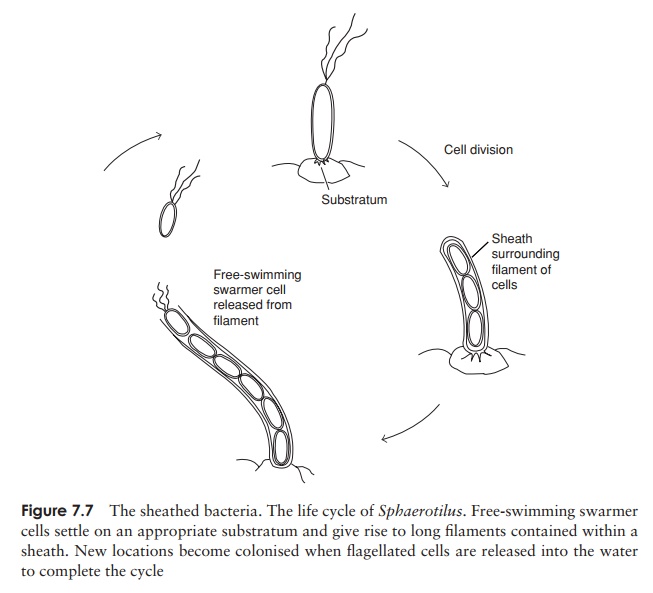Chapter: Essential Microbiology: Procaryote Diversity
Sheathed Proteobacteria
Sheathed Proteobacteria
Some genera of ╬▓ Proteobacteria exist as chains of cells surrounded by a tube-like sheath, made up of a carbohydrate/protein/lipid complex. In some cases, the sheath contains deposits of manganese oxide or ferric hydroxide, which may be the product of chemical or biological oxidation. Empty sheaths encrusted with oxides may remain long after the bacterial cells have died off or been released. As with the stalked bacteria the sheath helps in the absorption of nutrients, and may also offer protection against predators.
The sheathed bacteria have a relatively complex life cycle. They live in flowing water, and attach with one end of the chain to, for example, a plant or rock. Free-swimming single flagellated cells are released from the distal end and settle at another location, where a new chain and sheath are formed (Figure 7.7).

Sphaerotilus forms thick ŌĆśstreamersŌĆÖ in polluted water, and is a familiar sight aroundsewage outlets.
Representative genera: Sphaerotilus, Leptothrix
Related Topics